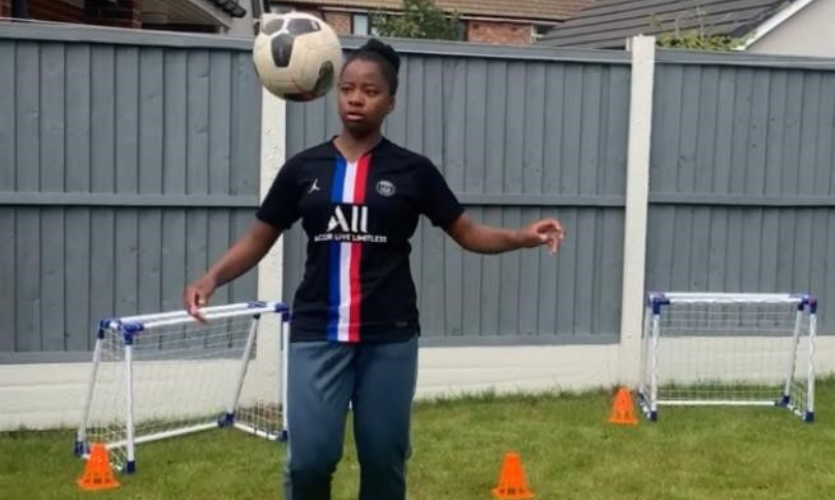Black History Month through the eyes of a local Liverpool pupil

This month Ceana Khonje, a local pupil from Belvedere College in Liverpool took on a work experience placement here at LJMU.
Ceana, who was a recipient of the Citizen Award at LJMU’s Black History Month event in 2020, worked alongside LJMU’s Equality team this month, speaking with JMSU and academics here at LJMU, as part of her placement.
As Black History Month continues, Ceana, who is also a Liverpool Feds Women Football Club Player, explains what Black History Month means to her?
For me, a young black girl from Liverpool, Black History Month is a time where I recognize the key roles, contributions, and sacrifices made by black men and women. It also enables society to gain a broader understanding of Black history, going beyond racism and slavery to also spotlight Black achievement and gives everyone the opportunity to share, celebrate and understand the impact of black heritage and culture.
Celebrating diversity and recognising its beauty brings us together. It helps us to learn about people from different cultures and backgrounds, and to understand how we are all connected. I see Black History Month as a stepping stone to the inclusivity and acceptance of someone’s blackness that we need to see, not only in this month, but all year round.
For us to understand where and who we are, we must understand our past and how we got here, including the events and people who shaped the way Britain stands today. Black History Month is an exciting time to publicly honour these men and women. It tells their wonderful stories in a way that makes us realise how they have impacted our lives—how our lives would not be the same if these people did not take risks to accomplish amazing things. There are so many people that could be mentioned but I particularly like to reflect on the brave achievements of Harriet Tubman who went to different lengths to secure freedom for herself and others who had been enslaved. For me she is the epitome of bravery and resilience.
Why do you think Black History Month is so important?
Black history is also British history. People from African and Caribbean backgrounds have been a fundamental part of British history for centuries. However, we see that their value and contribution to society is often overlooked, ignored or distorted.
What I have realised is that our history is so important in showing us that we can achieve anything, when we show resilience and overcome obstacles, like those gone before us. We can see the significance of Black role models like Arthur Wharton who in the 1880s became the world’s first black professional footballer, Maya Angelou who changed the world as a civil rights activist and as a poet, Mae C. Jemison the first black woman to travel to space. History isn’t only thousands of years ago though; it is being made right now.
Who are the Black role models I look up to?
In our society today there are so many Black role models that I look up to, such as Nikita Parris who herself is from Liverpool and now represents the nation in the England women's football team, she is one of three Black England women football players. Lewis Hamilton who is the only Black Formula 1 driver but has an outstanding record, Malorie Blackman whose books are well known and influential all over the world and so many more that encourage us in our local community, schools, colleges and universities to make a difference and to “dig deeper, look closer, think bigger."
What is your view on the school curriculum?
Most schools still teach a curriculum which focuses on traditional events and the achievements of white figures. Black History Month gives schools and universities the opportunity to widen understanding of the Black experience, to educate others on different cultures and ethnicities.
Here in Liverpool we have the oldest black community in Europe going back from the 1750’s and that is a part of history to be proud of.
Teaching these things would encourage a Black student to be proud and encourage them not to be afraid of who they are and where they come from.
Over the years there have been growing calls from campaigners for Black history to be included in the curriculum in England - and not just celebrated in October and hopefully this is a change that will impact our future.
Final thoughts from Ceana
To get a better tomorrow we cannot just be focused on the past.
This month is a time to come together and learn and is a chance to take action and act upon the idea of 'see something, say something'. Time for Change: Action Not Words.


